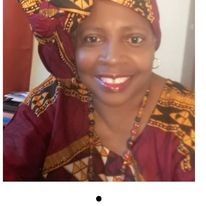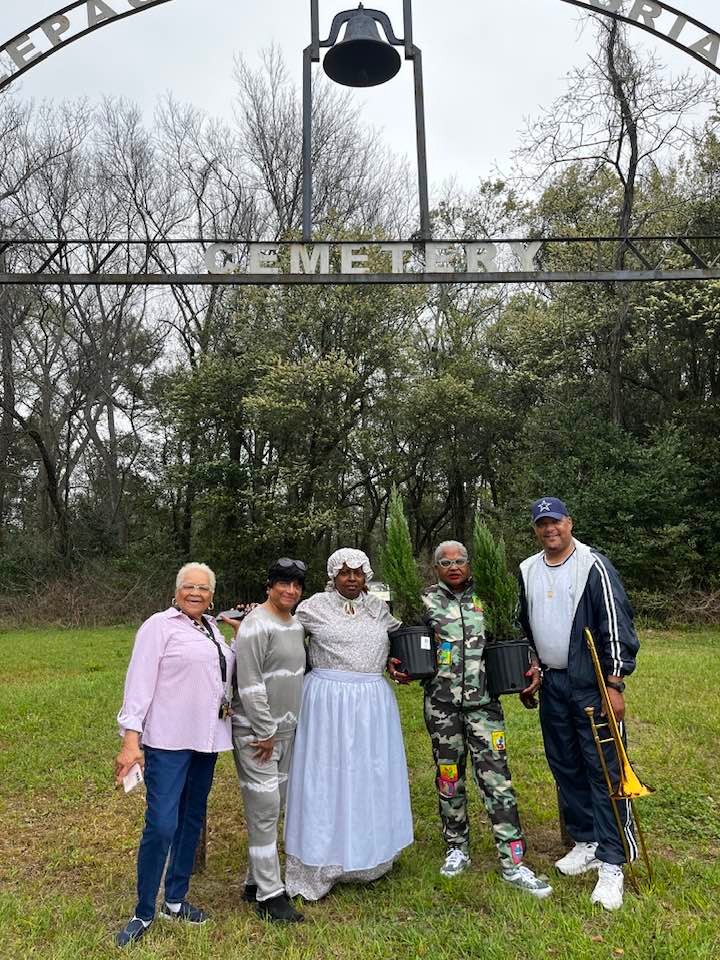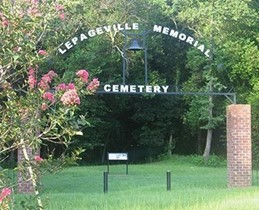

Today we’d like to introduce you to Patricia West.
Patricia, we appreciate you taking the time to share your story with us today. Where does your story begin?
My walk as a community servant began very early in life where I started in my church and the PTAs of the old, segregated schools. I have never wavered from a task worthy of support. This invitation to focus on my work to recover the history and grounds of Savannah’s LePageville Community provides an opportunity to shed light on one of those lesser-known activities. My role as an educator with a gift for writing dominates my life, but I also value my service to organizations such as the LePageville Memorial Cemetery Board of Directors. So much took place before I joined the LePageville Memorial Cemetery mission in 2016 while teaching at Savannah State University (SSU). At that time, Felicia Bell, Ph. D., left the university to pursue other interests and the College of Liberal Arts & Social Sciences (CLASS) needed a volunteer to serve as the new liaison between SSU and LePageville’s board of directors. After a lack of response and several ignored requests, I stepped up. My role is to provide advice and help based on my field of interests, such as history, writing, and communications. I was familiar with the site because I live near it and would often drive over just to look and wonder what it was all about. A brief description of my life experiences will show how I got to the LePageville Project, driven by the spirit of ancestors known and unknown, fueled by formal education, and a hunger to know more and document for future generations.
I am a proud native of Savannah, the daughter of working-class parents, the late Anna Belle Smalls West and Elijah West, Sr. who was a longshoreman on the Savannah docks. I am the oldest of 10 siblings, a wife, a mother of one, and grandmother of one. I was raised as a lifelong member of the St. Paul Missionary Baptist Church. During the 50s and 60s it was pastored by the late Rev. Amos Eugene Hagins, and the church served as an incubator for the civil rights movement. I am a proud Gullah Geechee descendant and member of the Scott, West, and Smalls families from Bellinger Hill/Levy and Parkers Ferry, South Carolina.
As a student of Savannah-Chatham County Public Schools, I attended Paulsen Street, Spencer, Hubert, Johnson Junior High, and finally, Savannah High School, where I graduated in 1972.
Would you say it’s been a smooth road, and if not, what are some of the biggest challenges you’ve faced along the way?
I believe ‘smooth’ is a relative term, but I will answer based on the LePageville experience. Let me make it clear that I am not a former resident, nor a known descendant. I have heard the oral histories, viewed archival materials, and read newspaper accounts of what life was like when the community and graveyard were established in 1885 as a residential convenience for the rail workers who loaded and unloaded shipments along the tracks. Railway entrepreneur Robert LePage set up the housing so that the men would live close to the worksite and not have transportation issues.
Absolutely, there were struggles! First, realize that LePageville was organized just 35 years after emancipation. The residents experienced the usual–economic struggles, social challenges, a lack of civil rights, and more. Above all, the houses did not have running water. A central community well served the entire neighborhood located off President Street, where a Dollar General Store and Waffle House sit in front of it, practically blocking the view.
Recently, my research revealed that the employees faced labor challenges when the railway company wanted to cut their wages from 70 cents a week.
I suspect that there were environmental and health problems as well. Just look at the death certificates for the number of dead babies buried in the cemetery!
There are no identifiable grave markers or tombstones left in the cemetery after decades of weather damage and grave-robbers! That is another problem. How do we restore dignity and recover this information?
Despite these challenges, I want to point out that LePageville residents were resilient! They attended school and held respectful jobs until the year 1967, when the houses were torn down and just the cemetery was left. Since the demolition, several of those residents such as fellow board members Janice Harrison Melbourne and descendant Brenda Elizabeth Ponder would go on to graduate from high school and Savannah State College, the only local college open to its black residents. Rev. Jimmie Mikell provides pastoral care as a chaplain at Memorial Health and is pastor of St. Thomas Missionary Baptist Church which is the reorganized LePageville Baptist Church, in its present location at 1100 Park Avenue. Board chair Kenneth Rouse is determined to keep the group and its mission alive. There are many other examples.
Today, LePageville Memorial Cemetery is plagued by a lack of financial resources to carry out its short-term and long-term goals. We have to constantly clean trash that blows over from nearby businesses. The donations barely cover the cost of grass-cutting and groundskeeping. The arch welcoming visitors needs some ironwork repair and painting.
Long-term, we would like to see dreams of the masterplan designed by landscape architect and board treasurer Dan Fischer fulfilled. That will require at least a couple hundred thousand dollars. To beautify the space in the cemetery, we need an arborist who is willing to donate these services. An old iron bell at the entry arch and donated by board member Patricia Jenkins and her family hangs in need of critical blacksmithing work. Several months ago blacksmith and part-time actor Gilbert Walker, known as “The Gullahsmith” provided an assessment of the necessary work. Honestly, we lost momentum for the project as a result of COVID-19. We are hoping to rebuild with both fundraising and ‘friendraising’.
Time is another challenge. Now that I am retired, I hope to complete our application to the National Register of Historic Places. and submit more grants. In 2018, I wrote a grant that was funded by Georgia Humanities.
Our mission statement says it all, “Our mission is to raise community awareness and funds to fulfill our dream of interpretive signage, green spaces, walking trails, and landscaping consistent with the historical, cultural, and preservation goals of historic Savannah and Georgia.”
Thanks – so, what else should our readers know about your work and what you’re currently focused on?
In 1976, I became an alumnae of Savannah State University with a degree in English Language and Literature and a minor in Mass Communications. After graduation, I went on to complete a year of graduate courses at the Henry W. Grady School of Journalism at the University of Georgia from 1978-1979. I later earned a Masters of English Education from Georgia Southern University in 1996 and completed doctoral work all but dissertation from Indiana University of Pennsylvania in 2016.
In 2022, I retired as an Assistant Professor of English who served at Savannah State University for 10 of my 36 years as an educator. Before Savannah State, I also taught at Scott Middle School Scott-Tompkins Middle School, and Armstrong Atlantic State University. I also served as English Department head at Savannah Technical College from 2008-2010. Since 2005, I have presented at least 20 workshops and conference sessions in numerous states across the country, from Beaufort, SC to Belize, Central America. Additionally, I am the author of over 20 journal articles and book chapters.
In 2020, I published my book Still Water Words: Poems and Stories from Ancestral Places, and in 2022, I co-authored the e-textbook Great Works of African American Literature through a grant from the University System of Georgia.
All of these life details lead me to projects that feed people literally or figuratively! That is why I support current students at SSU and more recently, efforts to preserve the Kiah Museum (founded by African-American artist Virginia Kiah) through Friends of the Kiah. Another interesting project is the recovery and archiving of 125 years of church and Savannah history at the St. Paul Missionary Baptist Church.
Are there any apps, books, podcasts, blogs, or other resources you think our readers should check out?
This is an interesting question for a history-loving creative writer! Give me access to a database such as Ancestry.com, the Internet Archives, or the Library of Congress, and I am happy! Resources such as these help me to fill in the blanks missing from current narratives.
Contact Info:
- Website: https://www.lepagevillememorialcemetery.org/
- Facebook: https://www.facebook.com/profile.php?id=100023487665110
- Linked In: www.linkedin.com/in/authorprofpatwest


Image Credits
LePageville Memorial Cemetery, Inc.











